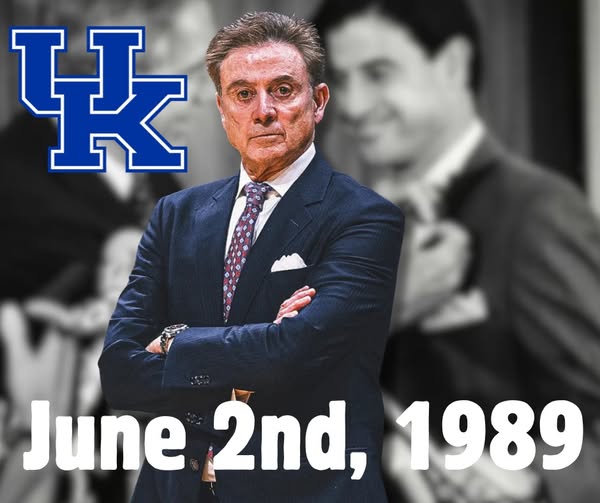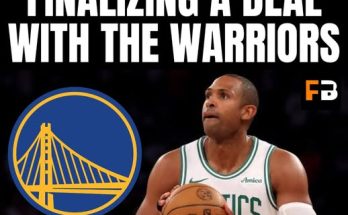June 2, 1989, may read like any other date on the calendar, but for the Kentucky Wildcats and college basketball at large, it marked the beginning of a transformative era. It was on this day that Rick Pitino signed his contract to become the head coach of the University of Kentucky men’s basketball team—an appointment that would set the stage for a dramatic resurrection of one of the sport’s most storied programs.
When Pitino officially accepted the job in early June, Kentucky was not the juggernaut that modern fans remember. Far from it. The Wildcats were staggering under the weight of NCAA sanctions following a pay-for-play scandal that had rocked the program and severely damaged its reputation. The program was in shambles, plagued by postseason bans, scholarship reductions, and a roster drained of talent. For a school that prided itself on banners, tradition, and excellence, the future looked anything but bright. Kentucky basketball, once a proud titan, was on life support.
Enter Rick Pitino.
At the time, Pitino was coming off a promising run in the NBA as head coach of the New York Knicks. Though he had achieved some success in the professional ranks, his heart belonged to the college game. He had built a national name for himself as the architect of the Providence Friars’ improbable Final Four run in 1987, thanks to a fast-paced, high-pressure style of play that emphasized the three-point shot and full-court defense. When Kentucky Athletic Director C.M. Newton approached him about the possibility of taking over in Lexington, Pitino hesitated at first. Why wouldn’t he? The program was under heavy sanctions. Rebuilding it would be a monumental challenge. But Newton was persuasive, selling Pitino on the idea of restoring the Wildcats’ legacy and etching his name in college basketball lore.
Pitino ultimately agreed. And on June 2, 1989, the ink dried on a contract that would change not only the course of Kentucky basketball history but the entire landscape of the college game. That signature marked the start of a rebuilding job unlike any other. For Pitino, it was not just a new position—it was a mission.
From the moment he stepped foot on campus, Pitino embraced the daunting task ahead of him. He didn’t flinch. He didn’t make excuses. Instead, he rolled up his sleeves and got to work. His approach was relentless, his energy infectious. He demanded total commitment from his players, many of whom were walk-ons or lightly recruited due to the program’s tarnished image and NCAA restrictions. He recruited smartly, leaning into players who were overlooked or undervalued by other programs. He put an emphasis on conditioning, preparation, and buy-in. Every practice was a war. Every drill a test of will.
Perhaps most importantly, he brought a new style of play to Lexington. Gone were the slow, deliberate half-court offenses of years past. In their place came an up-tempo, perimeter-oriented attack that relied heavily on the then-underutilized three-point shot. Pitino’s teams ran the floor with abandon, pressed on defense from baseline to baseline, and shot from deep with supreme confidence. The results weren’t instantaneous in terms of championships or even wins, but fans quickly fell in love with the passion, pace, and potential of what they were seeing.
In Pitino’s first season, the Wildcats posted a modest 14-14 record. On paper, it was unremarkable. In reality, it was a miracle. Given the circumstances, that .500 record was a triumph of coaching and culture over circumstance. It signaled that Kentucky basketball, long thought buried, was stirring again.
The next year, the team improved to 22-6, but still couldn’t participate in postseason play due to NCAA sanctions. Yet even without a shot at March Madness, Pitino’s vision was taking hold. The players bought in. The fans returned. The program was healing.
By the 1991-92 season, the Wildcats were back on the national stage in full force. That year, Pitino led Kentucky to a 29-7 record and a berth in the Elite Eight, where they faced the vaunted Duke Blue Devils in what is still considered by many the greatest college basketball game ever played. Kentucky lost on a last-second shot by Christian Laettner, but the heartbreak only solidified the team’s return to national prominence. No longer a rebuilding project, Kentucky was a force to be reckoned with.
Pitino’s legacy in Lexington reached its apex in 1996 when he guided the Wildcats to a 34-2 record and an NCAA Championship. That team, featuring the likes of Tony Delk, Antoine Walker, Walter McCarty, and Derek Anderson, was a whirlwind of athleticism, precision, and depth. Nicknamed “The Untouchables,” the 1996 Wildcats dominated nearly every team they faced and are still remembered as one of the greatest college basketball teams ever assembled. For Pitino, the title was the culmination of seven years of tireless work, and it validated the faith Kentucky had placed in him on that June day in 1989.
Beyond the wins and trophies, Pitino’s impact at Kentucky was broader and deeper. He modernized the program’s approach to everything—from recruiting to training to game strategy. He restored credibility to a program that had been badly damaged. He re-energized a fan base that had grown weary of controversy and scandal. And he laid the foundation for Kentucky’s future success, setting a standard of excellence that his successors would strive to uphold.
Even after Pitino left Kentucky in 1997 to return to the NBA, his influence remained. Tubby Smith inherited a loaded roster and won another national title in 1998. Many of the recruiting and cultural cornerstones Pitino had laid remained firmly in place. Kentucky was back—and it all started with that fateful decision on June 2, 1989.
There is a certain poetic symmetry to the arc of Pitino’s Kentucky tenure. He arrived at a time of crisis and left with the program at the summit. He came to Lexington facing skepticism and left as a legend. His time with the Wildcats wasn’t just about basketball; it was about redemption, resilience, and revival.
Of course, Pitino’s legacy is not without controversy. His later years, particularly at Louisville, were marred by scandal. But in the context of his Kentucky tenure, he remains a pivotal figure—arguably the most important coach in the program’s modern history. He didn’t just win games; he resurrected a fallen giant and made it roar again.
As the decades have passed since that early summer day in 1989, Kentucky fans still look back on Pitino’s arrival as a watershed moment. His hiring did more than fill a coaching vacancy. It gave hope to a program in despair. It inspired a new generation of Wildcats to dream big and play fast. It showed that even in the darkest hour, a turnaround is possible with the right leader, the right vision, and the right amount of belief.
Today, June 2 is not recognized with banners or formal holidays in Lexington. But for those who lived through the trials of the late 1980s and witnessed the rebirth that followed, it is a date forever etched in memory. It is the day Rick Pitino came to town. The day the Wildcats found their swagger. The day Kentucky basketball took its first step back toward glory.
In the story of college basketball, certain dates become chapters. June 2, 1989, is one of them. It was not a game day, not a championship, not a buzzer-beater. But it was the day everything changed. And in the annals of the blue and white, that may be the most important moment of all.



